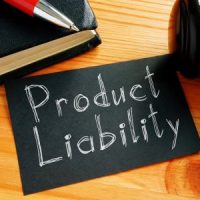Defenses to Product Liability Cases

If you are injured by a product that is broken, made dangerously, or defective, it may seem like the case is an easy one. After all, you didn’t make the product wrong, they did. But you may be surprised to know that there are common defenses to product liability cases.
Strict Liability
Victims of defective products get an easier path to recovering damages in a way, because of strict liability. Strict liability allows a victim to recover damages, without having to prove that the Defendant did anything wrong, or providing exactly what the Defendant did wrong. All that needs to be proven, is that the product was defective, and that the victim was injured because of the defect.
But although easier to prove, that doesn’t mean that product liability cases don’t have defenses—they do. One thing to remember about these defenses, is that they aren’t just things you want to avoid because it’s “bad for your case,” they’re also things you want to avoid doing because they’re just plain dangerous.
Misuse of a Product
Perhaps the most common defense is called misuse. As the name implies, this is where the Defendant (the maker or manufacturer or retailer of the dangerous product) alleges that you used the product in a way that it wasn’t intended to be used.
This is a powerful defense—but it only applies if your misuse of the product was unforeseeable (that is, the manufacturer could never have anticipated that you would have used the product in the way that you did). If the misuse was a foreseeable misuse, that is not misuse, and it won’t be a defense to the case.
We all use products in ways that are different from what was originally intended. For example, we’re all opened a paint can with a screwdriver—not the screwdrivers’ intended use. But the manufacturer can anticipate the screwdriver being used that way, and thus, that would not be misuse.
Assumption of Risk
Let’s face it—sometimes, we all use a product that we know is damaged or defective, knowing that it is damaged or defective. Maybe it’s just easier to do that. But when we knowingly accept the dangers of a dangerous product and continue to use it, the Defendant can say that we assumed the risk of any defect that the product may have.
Even if the product works fine and is not defective, some products are just naturally dangerous. A reasonable person would know a chainsaw can be dangerous. You can’t sue when the product works exactly as intended, and there’s nothing wrong with the design, it’s just a dangerous item and you assumed the risk of using it.
Modification of a Product
We often modify the things that we own. Think of someone that puts modifications on a car’s engine, or someone who builds additions onto household furniture or products.
If you modify a product, the Defendant can say you, and not they, made the product dangerous.
Injured by a defective product? Call the Knoxville personal injury attorneys at Fox Farley Willis & Burnette, PLLC, today.
Sources:
lawecommons.luc.edu/cgi/viewcontent.cgi?article=2500&context=luclj
lawshelf.com/videocoursesmoduleview/defenses-to-product-liability-actions–module-5-of-5/
